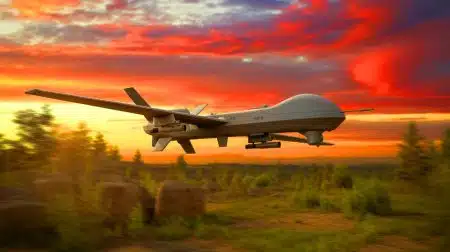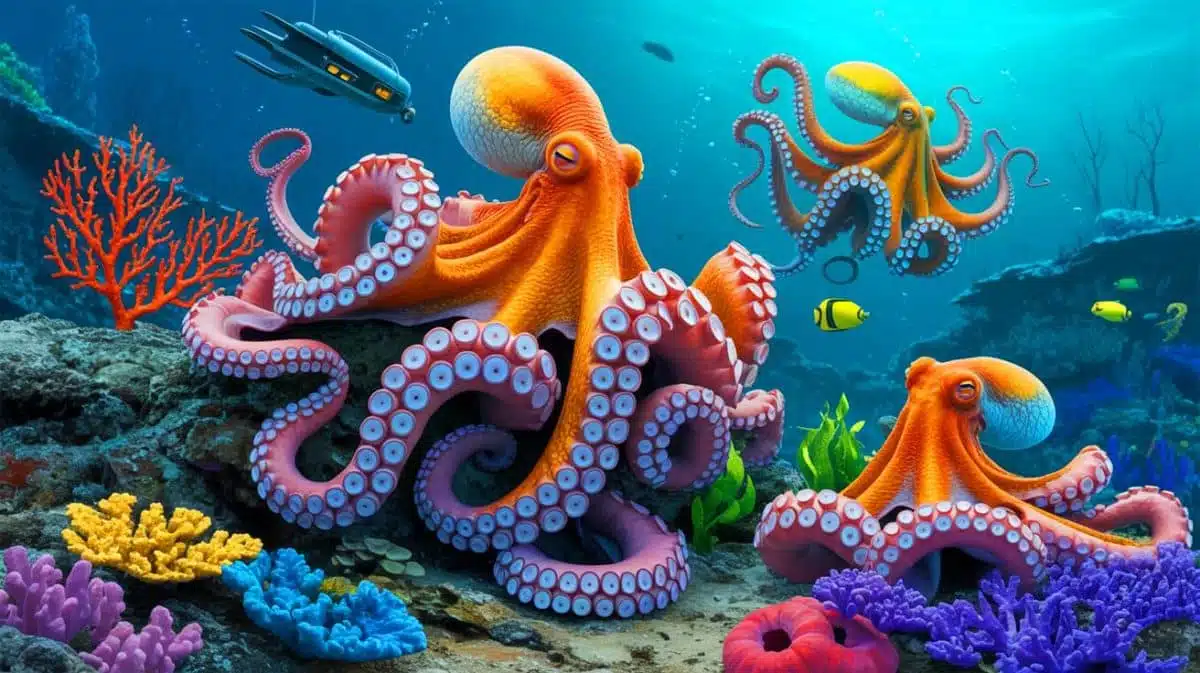| IN A NUTSHELL |
|
Imagine for a moment a world where humans have vanished, leaving behind empty cities and silent streets. In this new reality, nature reclaims its territory, and the animal kingdom rises to fill the void left by humanity’s absence. While it might sound like the plot of a science fiction novel, this scenario poses an intriguing question: which species would ascend to become the planet’s new rulers? Surprisingly, some scientists suggest that the answer lies not with mammals or birds, but with an unlikely marine creature known for its intelligence and adaptability: the octopus.
The Remarkable Intelligence of Octopuses
Octopuses are renowned for their extraordinary intelligence, setting them apart from most other animals. These cephalopods exhibit problem-solving abilities that rival those of primates, using tools and escaping from seemingly inescapable enclosures. With approximately 500 million neurons, most of which are distributed throughout their arms, octopuses possess a decentralized nervous system. This unique structure grants each tentacle a degree of autonomy, allowing the creature to perform complex tasks simultaneously. Their cognitive prowess makes them one of the most advanced species in the animal kingdom, positioning them as potential leaders in a post-human world.
Their notable intelligence is not just for show; it is a key survival trait. Octopuses can adapt to various challenges, such as changing environments and potential threats. Their ability to learn from experience and their capacity for curiosity are traits that could give them an edge in a rapidly transforming Earth.
Adaptability in Extreme Environments
The octopus’s adaptability is another factor that could enable it to thrive without humans. Unlike social creatures such as dolphins or crows, which rely heavily on group dynamics, octopuses are solitary by nature. This independence allows them to survive and thrive in extreme environments. They inhabit a range of habitats, from deep oceanic trenches to vibrant coral reefs, and can even survive briefly on land. This adaptability could prove crucial in a world where ecosystems are in flux, and habitats are continuously reshaping.
Scientists speculate that octopuses might one day fully adapt to terrestrial life, using their dexterity and intelligence to manipulate tools, construct shelters, and explore land-based environments. Although the absence of a rigid skeleton might initially hinder such endeavors, evolution has a way of surprising us, potentially equipping octopuses with the necessary adaptations over time.
Potential for Evolutionary Advancements
The idea that octopuses could become the dominant species on Earth might seem far-fetched, but it is not without scientific support. Professor Tim Coulson of the University of Oxford suggests that as ecosystems reestablish balance, new forms of intelligence and complexity may emerge in unexpected ways. The octopus’s intelligence and adaptability make it a prime candidate to fill ecological niches left vacant by humans.
It is worth noting that evolution is an ongoing process, constantly reshaping life on Earth. As environments change, species must adapt or face extinction. The octopus’s ability to rapidly adapt to new challenges and environments positions it as a resilient contender in the evolutionary race. Its potential to evolve further and occupy diverse ecological roles is a testament to the remarkable capabilities of this often-underestimated creature.
The Future of Life on Earth Without Humans
As we ponder a world devoid of humans, the role of octopuses in this new order is both fascinating and thought-provoking. Their intelligence, adaptability, and potential for evolution paint a picture of a future where marine life might take center stage. While it is impossible to predict the exact trajectory of evolution, the octopus offers a glimpse into the possibilities that lie ahead.
In a world where ecosystems are continuously evolving, new leaders may emerge from the depths of the ocean to claim the terrestrial throne. Could the octopus truly become the ruler of a post-human Earth, or will another species rise to the challenge? The future remains an open book, inviting us to consider the endless possibilities of life without humanity. What other surprising contenders might emerge in the absence of mankind, and how will they shape the destiny of our planet?
Did you like it? 4.5/5 (27)








What an interesting concept! I never thought octopuses could be such strong contenders. 🐙
Why octopuses? What about dolphins or other intelligent marine life?
Thank you for this eye-opening article! It really makes you think about the future. 🌍
Haha, octopuses ruling the world? Sounds like a sci-fi movie plot! 😂
Is there any evidence that octopuses could actually adapt to life on land?
Fascinating read! I’ve always been intrigued by the intelligence of octopuses. 🧠
This article is a bit far-fetched. I doubt octopuses could ever “take over” like that.
Thanks for sharing! I learned something new today. 🙏